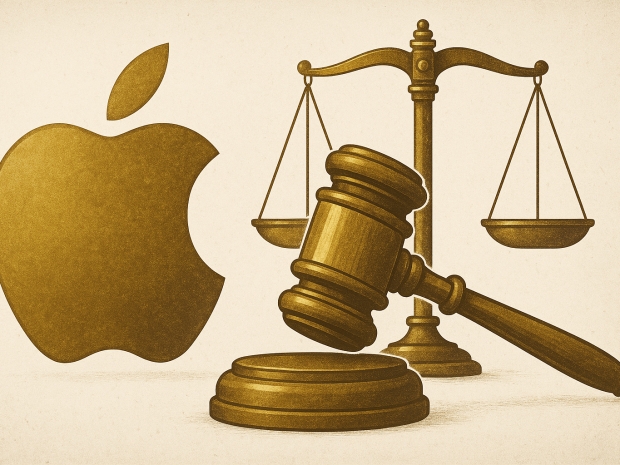In a filing to the San Francisco-based 9th US Circuit Court of Appeals, Job’s Mob is trying to wriggle out of an April decision that could finally let developers point users to non-Apple payment methods without the Cupertino taxman taking his cut.
Judge Gonzalez Rogers was not buying the fruity outfit’s excuses, noting in her ruling that “Apple sought to maintain a revenue stream worth billions in direct defiance of this court’s injunction.” She refused to stay her order and referred the company and one of its unnamed execs to federal prosecutors for a potential criminal contempt probe.
She added that the iPhone maker had “willfully failed to comply” with her earlier order, accusing it of delaying tactics and misleading the court.
The mess stems from a 2020 antitrust suit filed by Epic Games, which makes Fortnite and had enough of paying Job’s Mob 30 per cent for the pleasure of running on iOS. Gonzalez Rogers’ latest ruling kills off Apple's attempt to add a 27 per cent "alternative fee" to sideloaded app transactions and bans the use of manipulative “scare screens” warning users against third-party payments.
Naturally, Job’s Mob denied any wrongdoing but kept schtum on the details in its appeal notice. Epic Games also hasn’t piped up yet.
Historically, Apple never admits to doing anything wrong and it often needs the Supreme Court to tell it that its deranged world view is illegal. Take for example the E-Book Price-Fixing Saga in 2012, where Apple was found guilty of conspiring with major publishers to fix e-book prices, violating the Sherman Act. After a district court ruling in 2013 and an appellate court affirmation in 2015, Apple appealed to the Supreme Court. In 2016, the Supreme Court declined to hear the case, effectively upholding the lower court's decision. Apple was required to pay $450 million in settlements.
Then there was the 2011 App Store Monopoly Challenge where consumers alleged that Apple's App Store constituted a monopoly, leading to inflated app prices. Apple tried to get off on a legal technicality that only app developers, not consumers, had the standing to sue. However, in 2019, the Supreme Court ruled against Apple, stating that consumers could proceed with their lawsuit. This decision allowed the antitrust case to move forward, challenging Apple's App Store practices.

